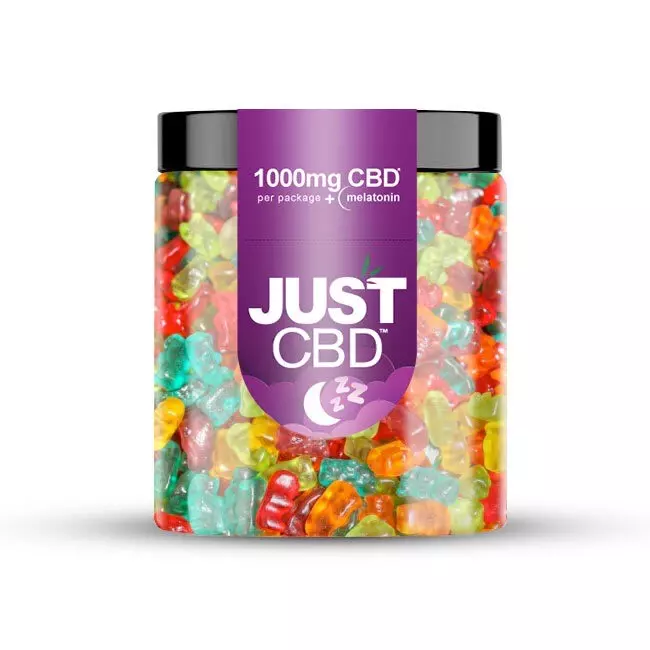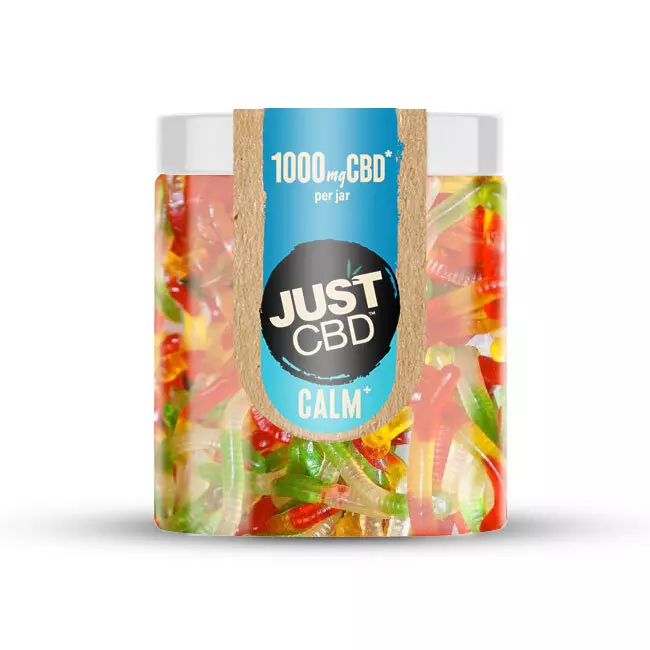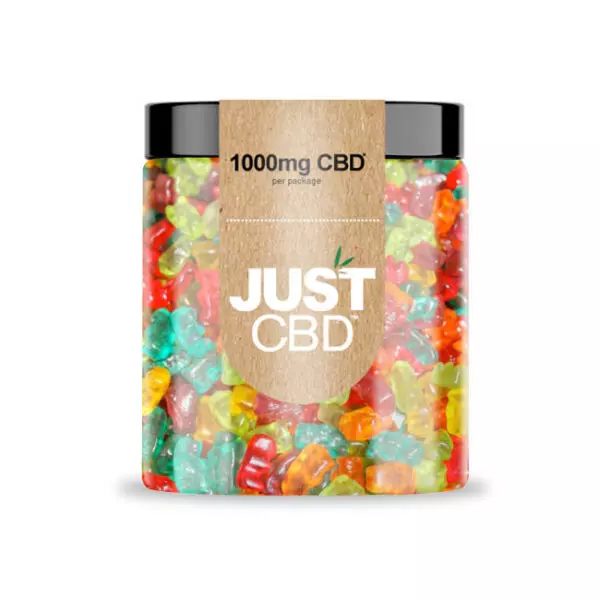CBD Gummies vs. Other CBD Products for Pain Relief

For those seeking natural pain relief, cannabidiol (CBD) has emerged as a popular option. While many forms of CBD exist, gummies have gained significant traction due to their convenience and ease of use. But how do these tasty treats stack up against other CBD products like oils, capsules, or topicals when it comes to managing pain?
Types of CBD Products
CBD products have become increasingly popular as a natural remedy for pain relief. Among these products, gummies stand out due to their convenience and enjoyable taste. But how do CBD gummies compare to other forms of CBD when it comes to alleviating pain?

Different types of CBD products offer various methods of ingestion and absorption, impacting their effectiveness for pain management. Besides gummies, common CBD products include oils, capsules, topicals (creams, balms), edibles (baked goods, beverages), and vapes.
CBD oil is often taken sublingually (under the tongue), allowing for rapid absorption into the bloodstream. Capsules provide a precise dosage but take longer to take effect. Topicals are applied directly to the affected area, providing localized relief. Edibles require digestion and may have delayed onset of action. Vaping delivers CBD quickly through inhalation.
The effectiveness of each method depends on individual factors like pain type, severity, and metabolism. Gummies offer a convenient and tasty option for regular CBD use, but their effects may be less immediate than sublingual oils or vapes. It’s important to consult with a healthcare professional to determine the most suitable CBD product and dosage for your specific needs.
How CBD Works for Pain
CBD has gained popularity as a potential natural remedy for pain relief, and one of the most popular ways to consume it is through gummies. But how do CBD gummies compare to other forms of CBD, like oils or capsules, when it comes to managing pain?

Understanding how CBD works for pain can shed light on this comparison. Cannabidiol (CBD) interacts with the body’s endocannabinoid system (ECS), which plays a crucial role in regulating various physiological processes, including pain perception. CBD is believed to reduce inflammation and modulate neurotransmitter activity, ultimately leading to pain relief.
- CBD Gummies:
- Pros:** Convenient, discreet, flavorful, easy to dose
- Cons: Can take longer to take effect, absorption may be less consistent due to digestion process. May contain added sugars and artificial ingredients.
- CBD Oils:
- Pros:** Fast-acting, precise dosing, versatile (can be taken sublingually or added to food/drinks)
- Cons: May have an unpleasant taste, require a dropper and holding under the tongue
- CBD Capsules:
- Pros:** Easy to swallow, pre-measured doses, convenient for travel.
- Cons: Can take longer to absorb than oils, less precise dosing
Pain Relief Mechanisms of Different CBD Products
CBD, or cannabidiol, has gained popularity as a natural pain reliever. It’s available in various forms, including gummies, oils, capsules, and topicals. When considering CBD for pain relief, understanding the different product types and their mechanisms of action is crucial.
Gummies offer a convenient and discreet way to consume CBD. They are generally well-tolerated and tasty, making them appealing for individuals who struggle with taking traditional pills or oils. However, the absorption rate of gummies can be slower than other methods as they need to be digested first. This means it may take longer to feel the pain-relieving effects.
CBD oils are absorbed quickly under the tongue due to the thin tissue lining the mouth, allowing for faster onset of effects. They come in varying potencies and can be easily dosed. Capsules provide a measured dose of CBD but are digested like any other oral medication, leading to a slower absorption rate compared to oils.
Topical CBD creams or balms are applied directly to the affected area, providing localized pain relief. They work by interacting with receptors in the skin and surrounding tissues, reducing inflammation and soothing pain. The effectiveness of topical CBD can vary depending on the severity of the pain and the individual’s skin absorption.
CBD is believed to exert its pain-relieving effects through multiple mechanisms, including modulating the endocannabinoid system (ECS). The ECS plays a crucial role in regulating various bodily functions, including pain perception. CBD interacts with ECS receptors, influencing neurotransmitter release and ultimately reducing pain signals.
It’s important to note that individual responses to CBD can vary. Factors like age, weight, metabolism, and the underlying cause of pain can influence its effectiveness. Consult with a healthcare professional before using CBD for pain relief, especially if you have pre-existing medical conditions or are taking other medications.
Factors to Consider When Choosing a CBD Product for Pain
CBD gummies have emerged as a popular method for pain relief, but how do they compare to other CBD products? Gummies offer convenience and discrete dosing, making them appealing for on-the-go use. They are enjoyable to consume and come in various flavors, masking the natural earthy taste of CBD. However, the effectiveness of gummies can vary depending on factors like absorption rates and individual body chemistry.
Other CBD products, such as oils, tinctures, creams, and capsules, offer potentially faster-acting relief due to direct application or absorption under the tongue. Topical creams can be particularly effective for localized pain, while capsules provide a controlled dose with longer-lasting effects.
When choosing a CBD product for pain, several factors should be considered: the type of pain, desired onset and duration of relief, personal preferences, and the product’s potency and quality. Consulting with a healthcare professional can help determine the most suitable option based on individual needs and medical history.
Dosage and Administration
CBD gummies offer a discreet and enjoyable way to incorporate CBD into your daily routine. Their portability and pre-measured doses make them appealing for on-the-go relief. However, the effectiveness of CBD gummies for pain varies depending on factors like the individual’s endocannabinoid system, the severity of their pain, and the potency of the gummies.
Other CBD products like oils or capsules can offer more precise dosing control and potentially faster absorption into the bloodstream. Topical creams or balms are particularly beneficial for localized pain relief, as they directly target the affected area. Ultimately, the best CBD product for pain relief depends on individual needs and preferences.
Determining the appropriate dosage of CBD is crucial for both efficacy and safety. Start with a low dose, typically around 5-10mg, and gradually increase it until you find what works best for your pain management. It’s important to note that individual responses to CBD can vary widely, so patience and experimentation are key.
Potential Side Effects and Risks
CBD gummies are becoming increasingly popular due to their ease of use and enjoyable taste, but how do they compare to other CBD products when it comes to pain relief? The type of CBD product you choose can affect how quickly it works and how well it relieves your pain.
For instance, CBD oils taken under the tongue are absorbed quickly into the bloodstream, making them a faster-acting option. Capsules provide a measured dose but take longer to kick in. Topical creams or balms, applied directly to the painful area, offer localized relief.
While gummies can be a convenient way to incorporate CBD into your daily routine, they may not provide immediate pain relief compared to other methods like sublingual oils or vaping. It’s important to remember that everyone responds differently to CBD, so finding the right product and dosage for you might require some experimentation.
It’s always a good idea to consult with a healthcare professional before starting any new supplement regimen, including CBD, to ensure it’s safe and appropriate for your individual health needs and potential interactions with other medications you may be taking.
Legal Status and Regulations
CBD gummies are a popular choice for pain relief due to their convenience and enjoyable taste. However, they work differently from other CBD products like oils or capsules.
CBD oil is often taken sublingually (under the tongue), allowing for rapid absorption into the bloodstream. Capsules provide a precise dosage but take longer to take effect. Topicals are applied directly to the affected area, providing localized relief.
Gummies offer a convenient and tasty option for regular CBD use, but their effects may be less immediate than sublingual oils or vapes. It’s important to consult with a healthcare professional to determine the most suitable CBD product and dosage for your specific needs.
The legal status of CBD varies widely depending on location and the source of the hemp used. In the United States, CBD derived from hemp with less than 0.3% THC is federally legal. However, state laws may differ, so it’s essential to check your local regulations.
Regulations for CBD products are still evolving globally. Some countries have strict guidelines for production, labeling, and sales of CBD products, while others have less stringent regulations. This can make it challenging for consumers to navigate the market and ensure they are purchasing safe and high-quality products.
Conclusion
Ultimately, the best CBD product for pain relief depends on individual needs and preferences. Gummies offer convenience and taste, while oils provide faster absorption. Capsules ensure precise dosing, and topicals target localized pain. Consulting with a healthcare professional can help determine the most suitable option based on the type of pain, severity, and other individual factors.
Try CBD Gummies for better sleep
Buy cbd gummies at JustCBD
Cycle for Azaylia
Faces of CTE
- Why Does Lip Filler Migration Happen - November 4, 2025
- What Is The Best Time Of Year To Get Bum Filler Injections? - November 3, 2025
- What Are The Best CBD Gummies For Sleep And Pain Relief - November 1, 2025
